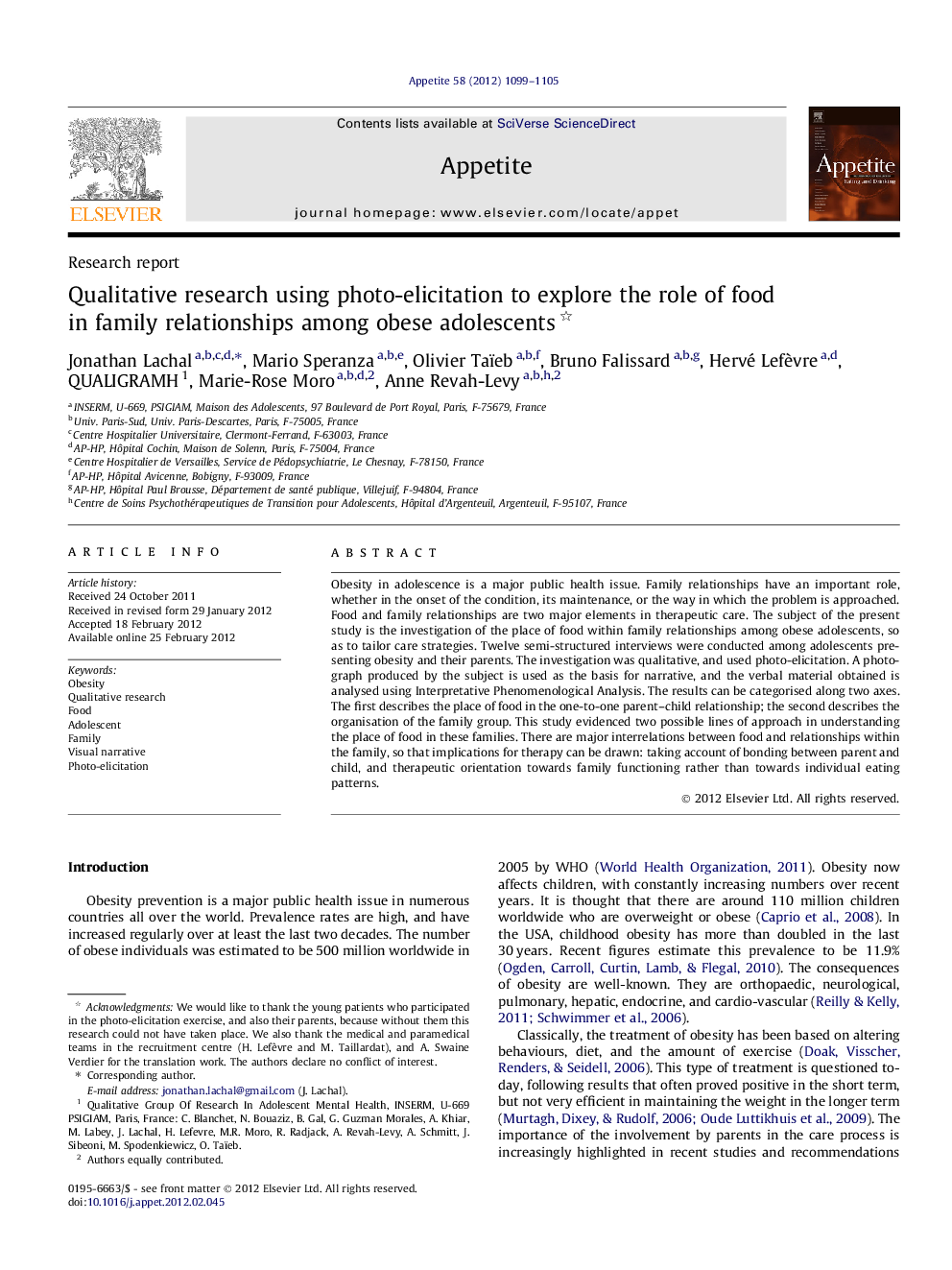| Article ID | Journal | Published Year | Pages | File Type |
|---|---|---|---|---|
| 940431 | Appetite | 2012 | 7 Pages |
Obesity in adolescence is a major public health issue. Family relationships have an important role, whether in the onset of the condition, its maintenance, or the way in which the problem is approached. Food and family relationships are two major elements in therapeutic care. The subject of the present study is the investigation of the place of food within family relationships among obese adolescents, so as to tailor care strategies. Twelve semi-structured interviews were conducted among adolescents presenting obesity and their parents. The investigation was qualitative, and used photo-elicitation. A photograph produced by the subject is used as the basis for narrative, and the verbal material obtained is analysed using Interpretative Phenomenological Analysis. The results can be categorised along two axes. The first describes the place of food in the one-to-one parent–child relationship; the second describes the organisation of the family group. This study evidenced two possible lines of approach in understanding the place of food in these families. There are major interrelations between food and relationships within the family, so that implications for therapy can be drawn: taking account of bonding between parent and child, and therapeutic orientation towards family functioning rather than towards individual eating patterns.
► Using an original method to facilitate narrative: photo-elicitation. ► Food used to manage the relational distance, and to regulate presence and absence. ► The “staging” of the meal provides information on the staging of the family itself.
